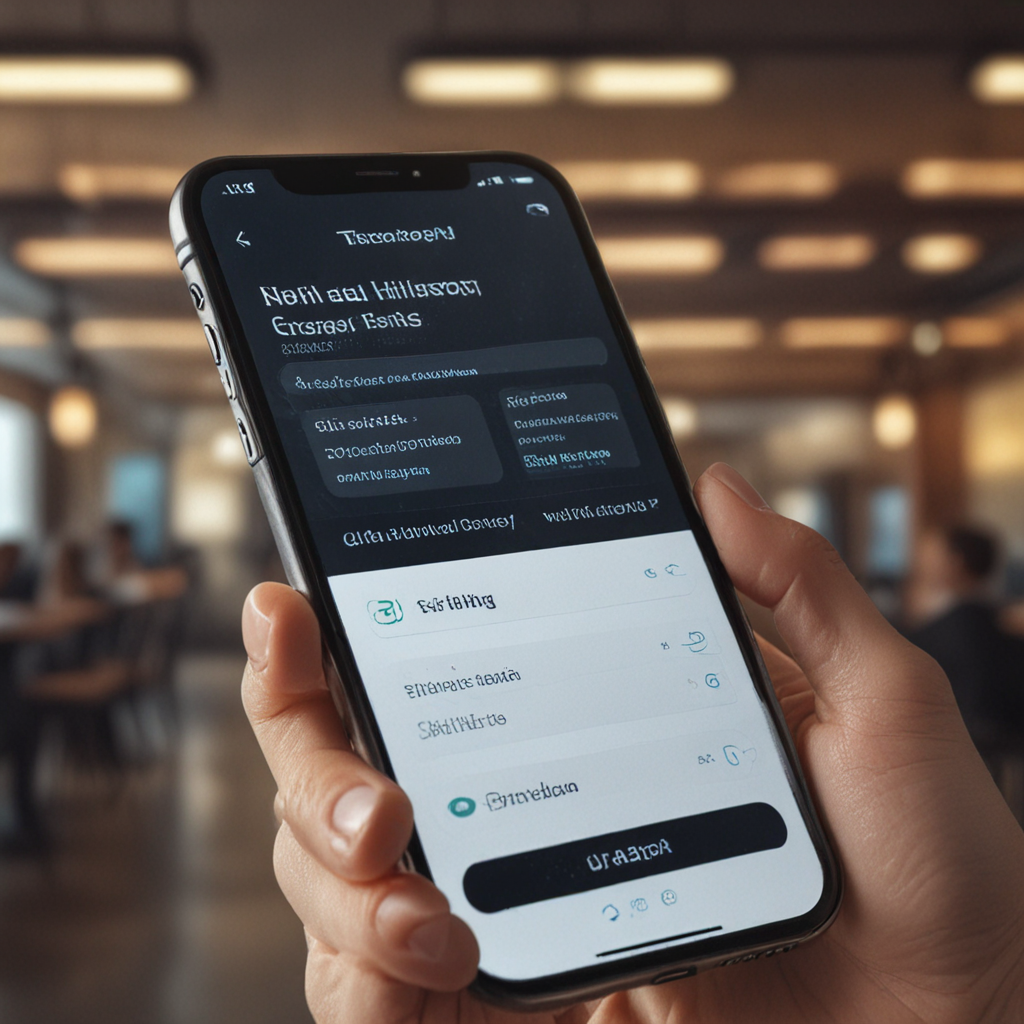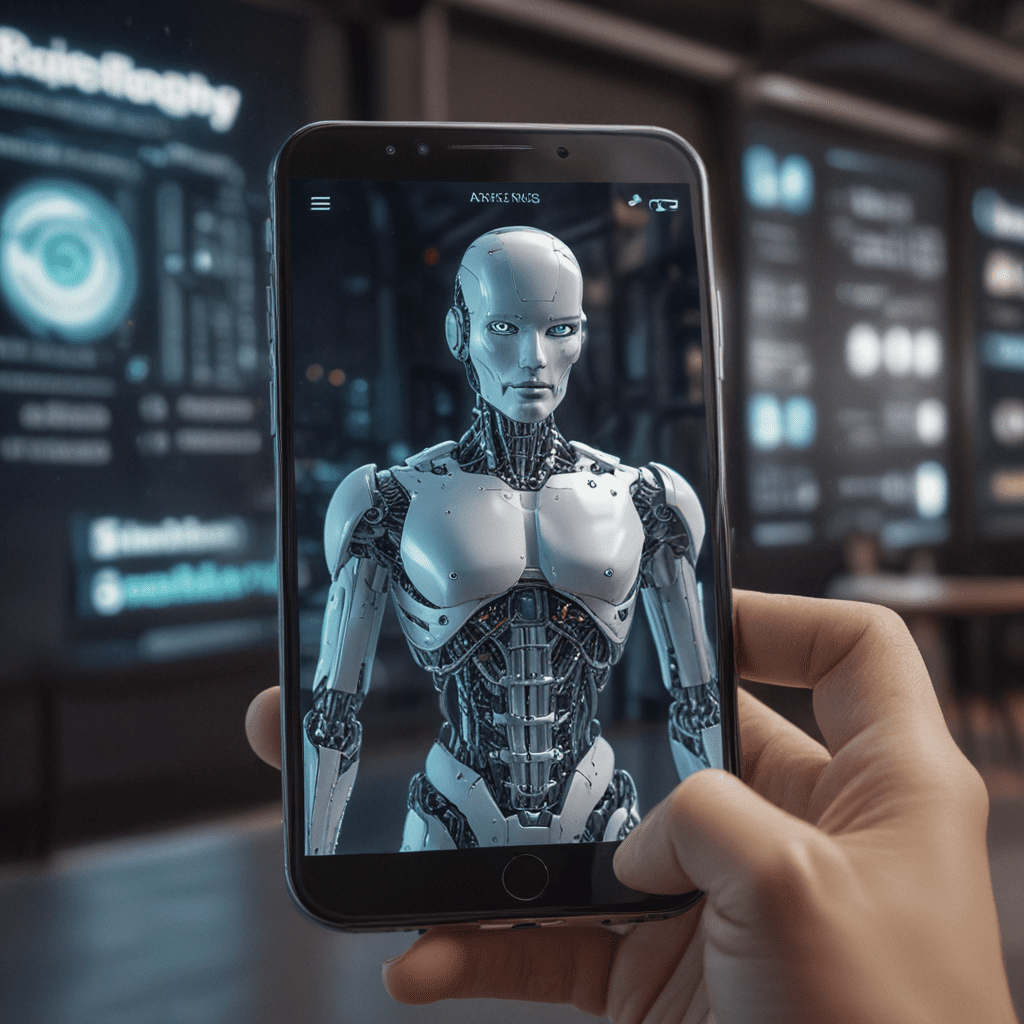Exploring Quantum Computing Applications in Mobile App Development
Introduction: The Convergence of Quantum Computing and Mobile Technology
Quantum computing, a cutting-edge technology at the forefront of scientific advancement, is poised to revolutionize multiple industries, including the realm of mobile app development. The convergence of these two domains holds immense potential for transforming how we create and experience mobile applications. By harnessing the extraordinary power of quantum computing, developers can unlock unprecedented opportunities to enhance mobile app performance, optimize data structures, and introduce groundbreaking features that redefine user experiences.
Quantum Computing Basics in Mobile App Context
Understanding the fundamental principles of quantum computing is crucial for appreciating its transformative impact on mobile app development. Quantum computers leverage the principles of quantum mechanics to manipulate qubits, the quantum equivalent of classical bits. Qubits possess the unique ability to exist in superposition, enabling simultaneous exploration of multiple states. This inherent parallelism grants quantum computers exceptional processing capabilities, far surpassing those of conventional computers.
Quantifying Data Structures for Mobile App Optimization
Data structures form the backbone of mobile applications, organizing and managing data efficiently. Quantum computing empowers developers to design quantum data structures that exploit the superposition and entanglement properties of qubits for optimized performance. By leveraging quantum algorithms, these structures can enhance data retrieval, search, and sorting operations, significantly boosting mobile app responsiveness and efficiency.
Accelerated Machine Learning Algorithms for Enhanced Mobile Experiences
Machine learning algorithms are increasingly integrated into mobile apps to provide personalized experiences, enhance user interactions, and drive data-driven decision-making. Quantum computing holds immense potential for accelerating machine learning processes, enabling rapid training of complex models on vast datasets. This enables mobile apps to deliver more accurate predictions, make smarter recommendations, and provide tailored experiences in real-time, thereby elevating user engagement and satisfaction.
Quantum Cryptography: Enhancing Mobile App Security
Mobile apps often handle sensitive user data, making security a paramount concern. Quantum cryptography, utilizing the principles of quantum mechanics, offers unparalleled levels of data protection. By harnessing quantum algorithms, developers can implement secure communication protocols that resist hacking attempts and protect user information from unauthorized access, ensuring enhanced trust and peace of mind for mobile app users.
Designing Quantum-aware User Interfaces
Quantum computing offers intriguing possibilities for reimagining mobile app user interfaces. Leveraging the principles of superposition and entanglement, developers can create dynamic and interactive interfaces that adapt seamlessly to user preferences and context. Quantum-aware user interfaces can provide personalized experiences, facilitate intuitive navigation, and enhance overall user engagement, revolutionizing the way we interact with mobile apps.
Case Studies: Real-World Applications of Quantum Computing in Mobile Apps
Several pioneering organizations have already begun exploring the integration of quantum computing into mobile app development. Notable examples include:
Quantum-powered language translation apps: Leveraging quantum algorithms for machine translation, these apps provide seamless real-time translation of text and speech across multiple languages, fostering global communication and cultural exchange.
Quantum-enabled image processing apps: Quantum algorithms ermöglichen Bildverarbeitungsprozesse, die klassische Computer überfordern. Diese Apps verbessern die Bildqualität, reduzieren Rauschen und ermöglichen fortschrittliche Bildmanipulationen, was zu beeindruckenden visuellen Erlebnissen auf mobilen Geräten führt.
Quantum-enhanced gaming apps: Quantum computing empowers the development of more immersive and engaging gaming experiences. Quantum algorithms can generate complex game worlds, create intelligent AI opponents, and enable real-time physics simulations, pushing the boundaries of mobile gaming.
Challenges and Opportunities in Quantum Mobile App Development
While quantum computing holds immense potential for mobile app development, it also presents certain challenges:
Limited availability of quantum hardware: Access to quantum computing resources is still limited, requiring developers to explore cloud-based services or collaborate with research institutions.
Steep learning curve: Quantum computing introduces new concepts and complexities, necessitating a dedicated learning effort for developers to master its principles and applications.
These challenges are outweighed by the transformative opportunities quantum computing offers:
Unprecedented performance improvements: Quantum algorithms can significantly accelerate key mobile app tasks, leading to enhanced responsiveness, faster loading times, and overall performance improvements.
Enhanced user experiences: Quantum computing empowers developers to create innovative and immersive user experiences that adapt dynamically to user preferences and context, fostering greater engagement and satisfaction.
Novel applications: Quantum computing opens doors to entirely new types of mobile applications, such as quantum-powered simulations, AI-driven decision-making, and real-time optimization algorithms.
Future Horizons: The Next Generation of Mobile App Innovation with Quantum Computing.
The convergence of quantum computing and mobile app development is at an early stage, but its potential for innovation is vast. As quantum hardware becomes more accessible and development frameworks mature, we can expect a surge in quantum-powered mobile apps that redefine user experiences, drive scientific advancements, and transform industries. The future of mobile app development promises to be profoundly shaped by the transformative power of quantum computing, unlocking unprecedented possibilities for innovation and progress.
FAQs:
What is the impact of quantum computing on mobile app development?
Quantum computing offers immense potential for enhancing mobile app performance, optimizing data structures, introducing groundbreaking features, and revolutionizing user experiences.How can quantum computing improve mobile app performance?
Quantum algorithms can significantly accelerate key mobile app tasks, leading to improved responsiveness, faster loading times, and overall enhanced performance.What are some real-world examples of quantum computing being used in mobile apps?
Quantum computing is being explored for use in language translation apps, image processing apps, and gaming apps, offering enhanced capabilities and improved user experiences.
What are the challenges of integrating quantum computing into mobile app development?
Limited availability of quantum hardware and the steep learning curve associated with quantum computing are some of the challenges faced by developers.What is the future of quantum computing in mobile app development?
As quantum hardware becomes more accessible and development frameworks mature, we can expect a surge in quantum-powered mobile apps that redefine user experiences and drive innovation across industries.



